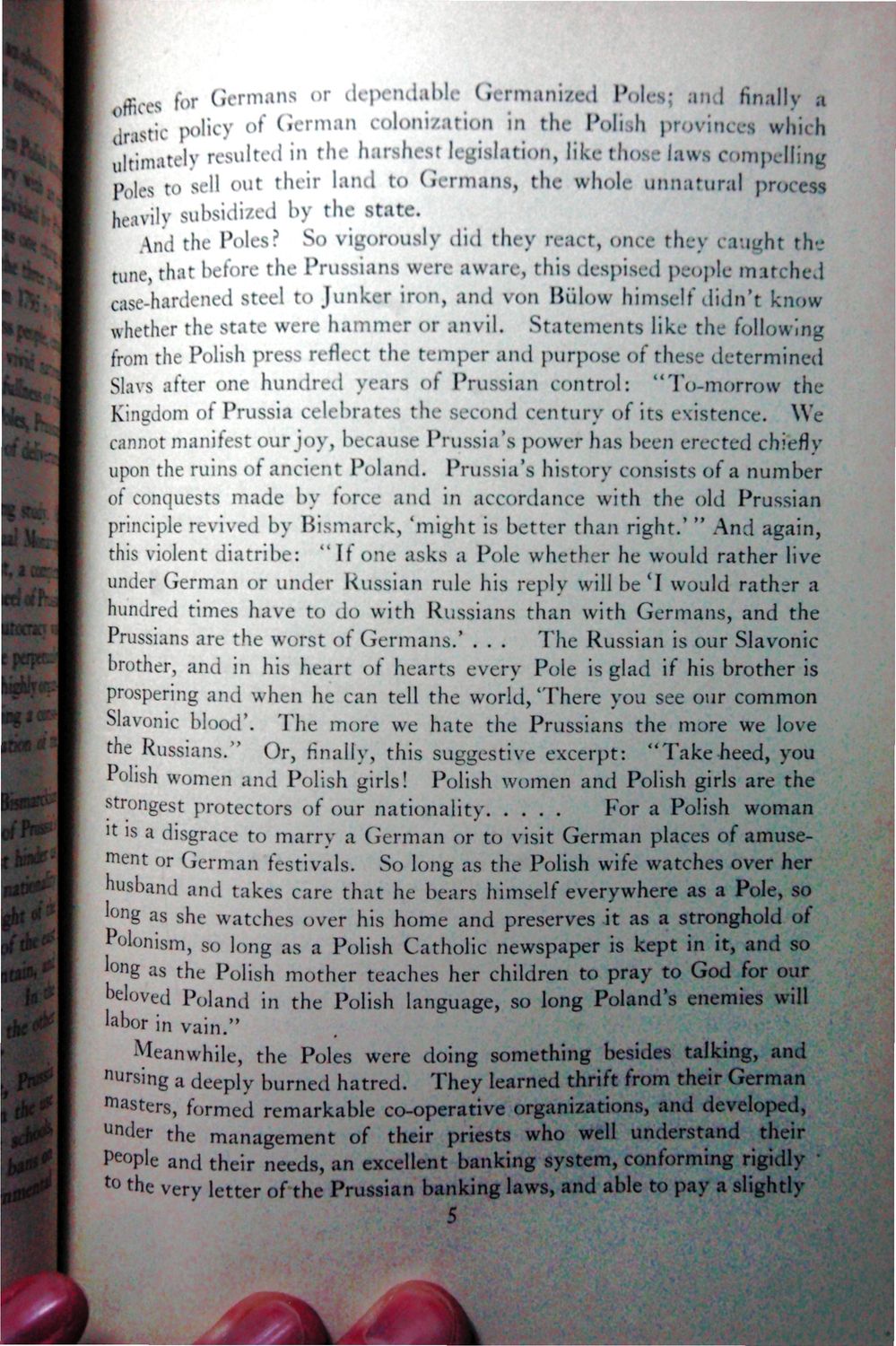| |
| |
Caption: War Publications - WWI Compilation 1923 - Article 24
This is a reduced-resolution page image for fast online browsing.

EXTRACTED TEXT FROM PAGE:
tt^c for Germans or dependable (Jermani/ed Pules; an I final! v a rustic policy of German colonization m tin- Pohdi provinces which 'itimately resulted in the harshest legislation, like thos/ laws compelling u PoKs to sell out their land to Germans, the whole unnatural process heavily subsidized by the state. And the Poles? So vigorously did they react, once they caught the tune, that before the Prussians were aware, this despised people matched case-hardened steel to Junker iron, and von Btilow himself didn't know whether the state were hammer or anvil. Statements like the following from the Polish press n fleet the temper and purpose of these determined 4< Slavs after one hundred years of Prussian control: To-morrow the Kingdom of Prussia celebrates the second century of its existence. We cannot manifest our joy, because Prussia's power has been erected chiefly upon the ruins of ancient Poland. Prussia's history consists of a number of conquests made by force and in accordance with the old Prussian principle revived by Bismarck, 'might is better than right/ " And again, <4 this violent diatribe: If one asks a Pole whether he would rather live under German or under Russian rule his reply will b e ' I would rather a hundred times have to do with Russians than with Germans, and the Prussians are the worst of Germans/ . . . The Russian is our Slavonic brother, and in his heart of hearts every Pole is glad if his brother is prospering and when he can tell the world/There you see our common Slavonic blood'. The more we hate the Prussians the more we love the Russians." Or, finally, this suggestive excerpt: "Take heed, you Polish women and Polish girls! Polish women and Polish girls are the strongest protectors of our nationality For a Polish woman lt: is a disgrace to marry a German or to visit German places of amusement or German festivals. So long as the Polish wife watches over her husband and takes care that he bears himself everywhere as a Pole, so lon g as she watches over his home and preserves it as a stronghold of Polonism, so long as a Polish Catholic newspaper is kept in it, and so long as the Polish mother teaches her children to pray to God for our beloved Poland in the Polish language, so long Poland's enemies will labor in vain. Meanwhile, the Poles were doing something besides talking, and nu rsing a deeply burned hatred. They learned thrift from their German masters, formed remarkable co-operative organizations, and developed, under the management of their priests who well understand their People and their needs, an excellent banking system, conforming rigidly • to the very letter of the Prussian banking laws, and able to pay a slightly 5 yy 0
| |